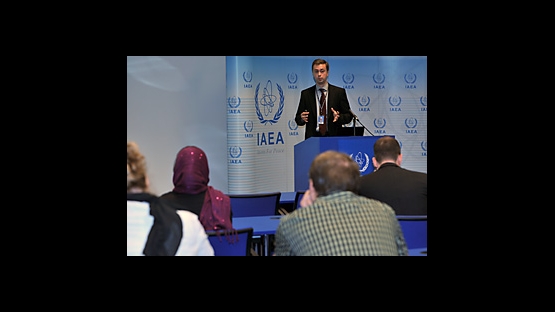The security of nuclear and other radioactive materials and the detection of nuclear and radiological smuggling activities is improving but there are issues with the transportation, storage and disposal of radioactive sources, experts from the IAEA reported yesterday.
Speaking at a press briefing on the latest statistics from the IAEA´s Illicit Trafficking Database (ITDB), Nuclear Security Officer Viacheslav Turkin said that the numbers, although still at a high level, point to improvements in nuclear security.
"Some States show a considerable decrease in the number of reported cases, and this can be an indication of improved security arrangements in those countries," he said.
"Certainly, we have seen success in the efforts to locate and secure orphaned radioactive sources, as the deployment of detection and monitoring equipment has increased detection at borders and within States."
However, Mr. Turkin also said that in the past three years, more cases involving metal products contaminated with Cobalt-60 have been reported.
"This is a disturbing development," he commented.
More generally, the responsible disposal of radioactively-contaminated materials remains an issue, he added.
Richard Hoskins, who heads the IAEA´s nuclear security Information Management and Coordination Section, explained that the ITDB is an invaluable tool that helps identify patterns and trends in illicit trafficking as well as potential threats.
He also said that the ITDB measures security programmes´ effectiveness.
"We try to analyse what it tells us about security systems... we are trying to learn lessons from the information that we get," he said.
"If we have been helping States to invest heavily in certain measures, we look for indicators in the data to show that this is working," he concluded.
Background
Established in 1995, the ITDB is the IAEA´s information system, tracks and provides authoritative information on illicit trafficking incidents and other unauthorized activities, involving nuclear and radioactive materials.
The ITDB´s scope is broad and includes, but is not limited to, incidents where nuclear or radioactive material is outside proper protection and control. The Database also records thwarted attempts to illegally acquire materials, as well as events involving non-radioactive materials when such materials are intentionally offered for sale as nuclear or radioactive - the so-called "nuclear scams".
Currently, 108 States and several international organizations participate in the ITDB Programme. Information is collected mainly from official sources and is supplemented by open-source reports.


